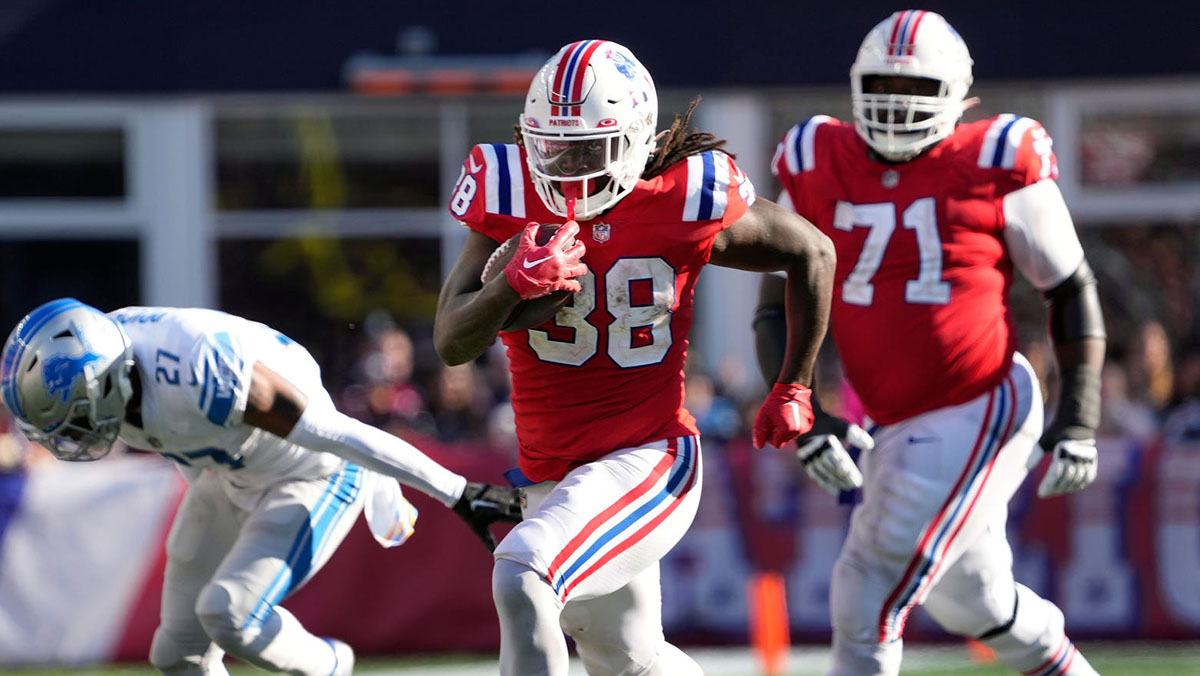
FOXBORO -- Everyone's watching, and Bill Belichick knows it.
Anyone can by NFL Game Pass, which provides the television broadcast of each of the league's games online as well as the "All-22" coaches film online. There are papers and sites -- like Pro Football Focus, or heck, our own -- that attempt to make sense of every play of every game and provide reasoned analysis.
As a result, there is a lot of information out there. But there is one inherent blind spot when it comes to just how accurate that information can be. In some instances, only the organization involved in a particular play could give an accurate assessment of what each player's responsibilities were. Certain elements of the game are taught differently from one team to the next, and they may be understood differently from one site to the next.
It's an issue that Belichick has thought about, and he took a moment in his Friday morning press conference to point out -- in a style all his own -- just what he thinks of places making judgment calls when they may not be sure who to judge on a play-to-play basis. Belichick had one example of a difficult-to-grade play float his way when he was asked about rookie kick-returner Cyrus Jones.
On the game's opening kick in last weekend's game between the Patriots and Bills, Jones was hesitant to take a knee in the end zone, came out, and was tackled at the New England 10-yard line. Though special teams captain Matthew Slater took blame for the play after the fact -- it's Slater's job to help Jones realize whether or not he should return the kick or kneel -- Jones has been pegged by many as the responsible party. His apparent indecisiveness implied guilt.
Belichick was asked about his decision to keep Jones in the game as a returner despite what looked like an error on the part of the Alabama product.
"I would say my advice to you and to the fans and to everybody else would be not to decide to quick who's right and who's wrong when you don't really know what's going on," Belichick said. "It's hard for me too. If I watch something on another player or another team, I can see there's a mistake, [but] I'm not really sure who made it. Obviously something wasn't done properly. That's definite. But what went wrong and why it went wrong? What's the background of how it happened? If you're not really part of the team, that's a very hard thing to evaluate."
New England Patriots
Then came the "experts" jab.
"I respect the experts that are out there," Belichick said. "There are a lot of good ones, but I know it's very hard for me when I see a mistake on the field that the other team makes to identify exactly what the problem was because it could actually be one of two or three things. Unless you actually know what the call was, what they were taught to do, I don't know if you really know who actually made the mistake."
Belichick echoed a similar sentiment when he was asked a follow-up about his team's rules in the kick-return game, as in, when should a player take a kick out, and when should he take a knee?
"Whatever your rules are, they are," Belichick said. "That's not just the returner . . . You can make them whatever you want them to be. Ours change from game to game. We don't necessarily do the same thing every single game. You hear people say, you know, 'Don't do this. Don't do that. Don't field a punt in this area. Don't bring a return out in this area.'
"Well, unless you know what a guy's being told to do, I don't know how you'd know that. Again, I know we have a lot of smart people out there analyzing the games so I respect that, but it's still hard for me to understand how they would know what people are told to do in those situations when there's a lot of ways you could handle it."


